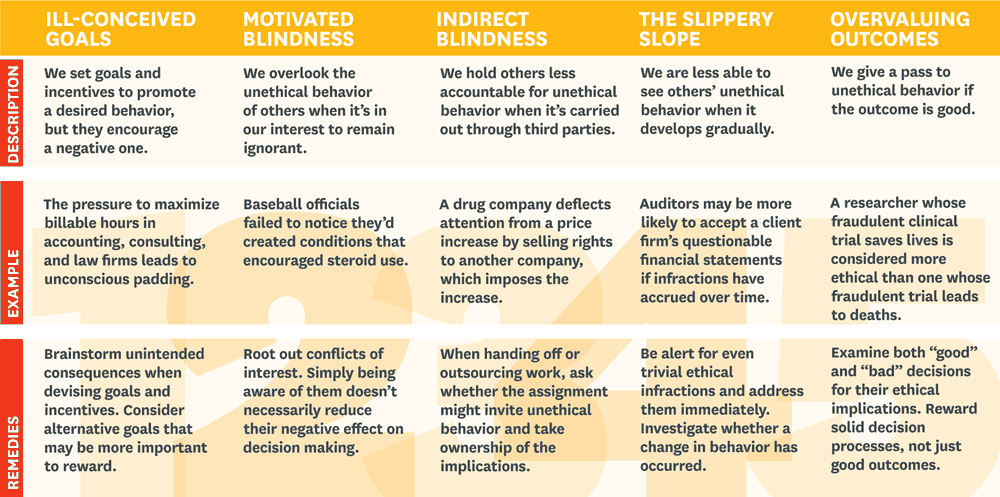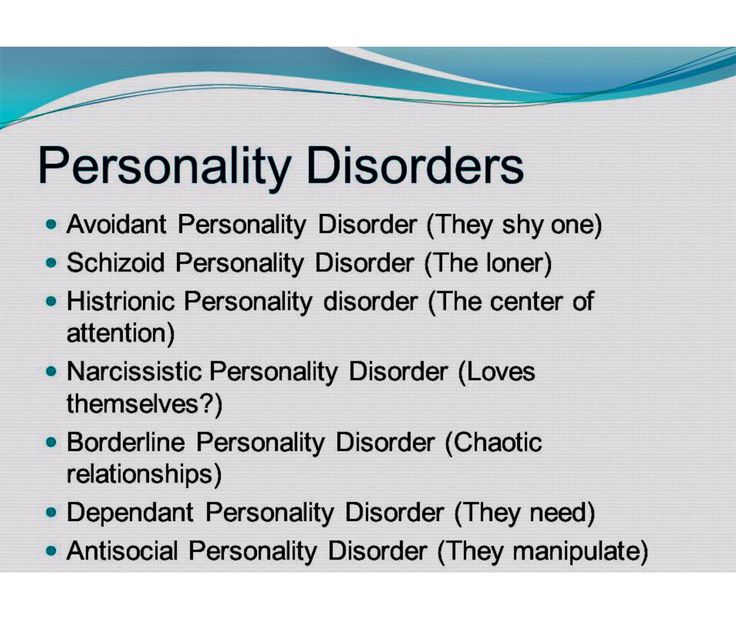Women make more money
Young women earn more than young men in several U.S. cities
(Getty Images)Women in the United States continue to earn less than men, on average. Among full-time, year-round workers in 2019, women’s median annual earnings were 82% those of men.
The gender wage gap is narrower among younger workers nationally, and the gap varies across geographical areas. In fact, in 22 of 250 U.S. metropolitan areas, women under the age of 30 earn the same amount as or more than their male counterparts, according to a new Pew Research Center analysis of Census Bureau data.
How we did this
Men in the United States have long earned more than women, on average, but this gender wage gap has slowly narrowed over time. The gap tends to be smaller among younger workers. This analysis examines the extent to which the gender wage gap among young workers also varies across metro areas.
The analysis is based on the American Community Survey (ACS), the largest household survey in the U. S., with a sample of more than 3 million addresses. It covers the topics previously covered in the long form of the decennial census. The ACS is designed to provide estimates of the size and characteristics of the nation’s resident population, which includes persons living in households and group quarters.
The specific 2015-2019 five-year ACS microdata sample used here was provided by the Integrated Public Use Microdata Series (IPUMS) from the University of Minnesota. IPUMS assigns uniform codes, to the extent possible, to data collected in the ACS.
The 2019 ACS data is the most recent available. The collection of the 2020 data was severely impacted by the COVID-19 pandemic.
Based on the 2010 census, the U.S. Office of Management and Budget delineated 384 metropolitan statistical areas. The IPUMS ACS provides information on 260 metros. As explained in the documentation for MET2013, there is an imprecise correspondence between the metro boundaries in the ACS data and the official metro area boundaries. This analysis uses information for only 250 metros because 10 metros had an insufficient number of young full-time, year-round working women living in them to provide accurate estimates.
This analysis uses information for only 250 metros because 10 metros had an insufficient number of young full-time, year-round working women living in them to provide accurate estimates.
A “full-time, year-round worker” worked at least 50 weeks in the year prior to the interview date and usually worked at least 35 hours per week. Among women workers under 30, 43% work full time, year-round.
Recent Pew Research Center analyses of the gender pay gap examine the median hourly wage of both full- and part-time workers using the Current Population Survey (CPS). The CPS does not provide information on individual metropolitan areas. The CPS and ACS provide similar estimates of the gender pay gap for the U.S. Using the CPS, the Census Bureau estimates that the gender earnings gap for full-time, year-round workers ages 15 and older was 82% for 2019, matching that derived from the ACS.
The New York, Washington, D.C., and Los Angeles metropolitan areas are among the cities where young women are earning the most relative to young men. In both the New York and Washington metro areas, young women earn 102% of what young men earn when examining median annual earnings among full-time, year-round workers. In the Los Angeles-Long Beach-Anaheim metro area, the median earnings for women and men in this age group were identical in 2019. (For data on earnings and the gender gap for 250 U.S. metropolitan areas, read this Google sheet.)
In both the New York and Washington metro areas, young women earn 102% of what young men earn when examining median annual earnings among full-time, year-round workers. In the Los Angeles-Long Beach-Anaheim metro area, the median earnings for women and men in this age group were identical in 2019. (For data on earnings and the gender gap for 250 U.S. metropolitan areas, read this Google sheet.)
Overall, about 16% of all young women who are working full time, year-round live in the 22 metros where women are at or above wage parity with men.
There are 107 metros where young women earn between 90% and 99% of what young men earn. Nearly half (47%) of young women working full time, year-round lived in these areas in 2019.
In another 103 metros, young women earn between 80% and 89% of what men earn. These areas were home to 17% of young women who were employed full time, year-round in 2019.
And in 14 metros, young women’s earnings were between 70% and 79% those of men in 2019. About 1% of the young women’s workforce lived in these metros.
About 1% of the young women’s workforce lived in these metros.
In four metro areas – Mansfield, Ohio; Odessa, Texas; Beaumont-Port Arthur, Texas; and Elkhart-Goshen, Indiana – women younger than 30 earn between 67% and 69% of what their male counterparts make. These metros account for 0.3% of the young women’s workforce. (Some 19% of young women in the workforce are employed in metros where earnings data is not available or are in nonmetropolitan areas.)
From a regional perspective, metropolitan areas in the Midwest tend to have wider gender wage gaps among young workers. Young women working full time, year-round in Midwestern metros earn about 90% of their male counterparts. In other regions, by comparison, young women earn 94% or more of what young men earn.
Nationally, women under 30 who work full time, year-round earn about 93 cents on the dollar compared with men in the same age range, measured at the median. As these women age, history suggests that they may not maintain this level of parity with their male counterparts. For example, in 2000, the typical woman age 16 to 29 working full time, year-round earned 88% of a similar young man. By 2019, when people in this group were between the ages of 35 and 48, women were earning only 80% of their male peers, on average. Earnings parity tends to be greatest in the first years after entering the labor market.
For example, in 2000, the typical woman age 16 to 29 working full time, year-round earned 88% of a similar young man. By 2019, when people in this group were between the ages of 35 and 48, women were earning only 80% of their male peers, on average. Earnings parity tends to be greatest in the first years after entering the labor market.
Labor economists examine earnings disparities among full-time, year-round workers in order to control for differences in part-time employment between men and women as well as attachment to the labor market. However, even among full-time, year-round workers, men and women devote different amounts of time to work. Men under 30 usually work 44 hours per week, on average, compared with 42 hours among young women.
Note: For data on earnings and the gender gap for 250 U.S. metropolitan areas, read this Google sheet.
Richard Fry is a senior researcher focusing on economics and education at Pew Research Center.
POSTS BIO TWITTER EMAIL
Gender pay gap in U.
 S. held steady in 2020
S. held steady in 2020The gender gap in pay has remained relatively stable in the United States over the past 15 years or so. In 2020, women earned 84% of what men earned, according to a Pew Research Center analysis of median hourly earnings of both full- and part-time workers. Based on this estimate, it would take an extra 42 days of work for women to earn what men did in 2020.
As has been the case in recent decades, the 2020 wage gap was smaller for workers ages 25 to 34 than for all workers 16 and older. Women ages 25 to 34 earned 93 cents for every dollar a man in the same age group earned on average. In 1980, women ages 25 to 34 earned 33 cents less than their male counterparts, compared with 7 cents in 2020. The estimated 16-cent gender pay gap among all workers in 2020 was down from 36 cents in 1980.
How we did this
The gender pay gap measures the difference in median hourly earnings between men and women who work full- or part-time in the U.S. Historically, men have earned more on average than women, but the gap has slowly closed over time. The most recent data is from 2020 Current Population Survey Merged Outgoing Rotation Group (MORG) files. To understand how we calculate the gender pay gap, see our 2013 post, “How Pew Research Center measured the gender pay gap.”
The most recent data is from 2020 Current Population Survey Merged Outgoing Rotation Group (MORG) files. To understand how we calculate the gender pay gap, see our 2013 post, “How Pew Research Center measured the gender pay gap.”
The U.S. Census Bureau has also analyzed the gender pay gap, though its analysis looks only at full-time workers (as opposed to full- and part-time workers). In 2019, full-time, year-round working women earned 82% of what their male counterparts earned, according to the Census Bureau’s most recent analysis.
Why does a gender pay gap still persist?
Much of this gap has been explained by measurable factors such as educational attainment, occupational segregation and work experience. The narrowing of the gap is attributable in large part to gains women have made in each of these dimensions.
Even though women have increased their presence in higher-paying jobs traditionally dominated by men, such as professional and managerial positions, women as a whole continue to be overrepresented in lower-paying occupations relative to their share of the workforce. This may contribute to gender differences in pay.
This may contribute to gender differences in pay.
Other factors that are difficult to measure, including gender discrimination, may also contribute to the ongoing wage discrepancy. In a 2017 Pew Research Center survey, about four-in-ten working women (42%) said they had experienced gender discrimination at work, compared with about two-in-ten men (22%). One of the most commonly reported forms of discrimination focused on earnings inequality. One-in-four employed women said they had earned less than a man who was doing the same job; just 5% of men said they had earned less than a woman doing the same job.
Motherhood can also lead to interruptions in women’s career paths and have an impact on long-term earnings. Our 2016 survey of workers who had taken parental, family or medical leave in the two years prior to the survey found that mothers typically take more time off than fathers after birth or adoption. The median length of leave among mothers after the birth or adoption of their child was 11 weeks, compared with one week for fathers. About half (47%) of mothers who took time off from work in the two years after birth or adoption took off 12 weeks or more.
About half (47%) of mothers who took time off from work in the two years after birth or adoption took off 12 weeks or more.
Mothers were also nearly twice as likely as fathers to say taking time off had a negative impact on their job or career. Among those who took leave from work in the two years following the birth or adoption of their child, 25% of women said this had a negative impact at work, compared with 13% of men.
Once women become mothers, juggling family caregiving responsibilities and work can be a challenge. Mothers, even those who are married and work full time, tend to carry a larger load at home than fathers when it comes to these tasks. In a 2019 survey, mothers with children younger than 18 were more likely than fathers to say they needed to reduce their work hours, felt like they couldn’t give full effort at work and turned down a promotion because they were balancing work and parenting responsibilities. Roughly one-in-five mothers said they had been passed over for an important assignment or a promotion at work, while 27% said they had been treated as if they weren’t committed to their work.
Overall, Americans see equal pay as central to gender equality. In a 2020 survey, 45% of those who said it’s important for women to have equal rights with men volunteered equal pay as a specific example of what a society with gender equality might look like. This response trumped other items such as women not being discriminated against for their gender or women being equally represented in leadership positions.
Note: This is an update of a post originally published on March 22, 2019. Former Pew Research Center staff Nikki Graf and Eileen Patten contributed to this analysis.
Amanda Barroso is a former writer/editor focusing on social trends at Pew Research Center.
POSTS BIO EMAIL
Anna Brown is a research associate focusing on social and demographic trends research at Pew Research Center.
POSTS BIO TWITTER EMAIL
"Bad wife or mother complex." Top managers told how a woman's high earnings affect relationships in the family
Research shows that about every fifth couple breaks up because the woman's income is higher than that of the partner. Why is this happening? We asked this question to top managers of large companies
Why is this happening? We asked this question to top managers of large companies
Especially for Forbes Woman, the consulting company Kontakt InterSearch Russia conducted a study among top managers, CEOs and business owners and asked if earnings affect relationships in a couple. The survey involved 801 people, among them 47% of men and 53% of women. nine0008
Finished reading here
Eighteen percent of respondents admitted that they know of specific cases or have themselves experienced when the increase in the income of a woman in a couple led to a break in relations. According to the survey, about 54% of female executives earn more than their partners. 17% of women receive less than their husband's income, another 24% earn approximately the same amount with a partner.
At the same time, male top managers in 85% of cases earn more than their wives. For 53% of female leaders (and 57% of men), the difference in earnings with a partner is more than twice. Only 2% of top managers turned down lucrative financial job offers due to the fact that they would earn more than a partner. For 9For 8% of managers, this did not become a stop factor, which ultimately allowed them to achieve top corporate positions.
For 53% of female leaders (and 57% of men), the difference in earnings with a partner is more than twice. Only 2% of top managers turned down lucrative financial job offers due to the fact that they would earn more than a partner. For 9For 8% of managers, this did not become a stop factor, which ultimately allowed them to achieve top corporate positions.
Respondents do not have a common opinion about who should earn more in a pair. 62% of men believe that the husband should provide the main income, women are of the same opinion in 39% of cases.
Ekaterina Eliseeva, General Director of Bonduelle Eurasia
I am sure that couples stay together because they are united by common interests, outlook on life, values in the end. In this list of unifying elements, money and wealth are not decisive. A strong alliance will survive the loss of the job of one of the partners without reproaches and accusations. In such an alliance, mutual trust, respect and support come first. nine0005
A strong alliance will survive the loss of the job of one of the partners without reproaches and accusations. In such an alliance, mutual trust, respect and support come first. nine0005
They say that behind every successful man there is a woman, and in my opinion, behind every successful woman there is a man. It's trite, but true - in a couple we are stronger, we have someone to rely on. Only in a pair, it seems to me, is it possible to achieve balance. Balance is a state of flux. Today you work, and I take care of the children, tomorrow I have a breakthrough in my career, and you provide a reliable rear.
In our time, when it is no longer necessary to kill a mammoth in order to feed a family, the one who is better at it should provide prosperity, and not the one who has more muscles. nine0005
I was lucky, among my friends there are no couples in which the success of a woman became the reason for parting. But there are several strong alliances where wise men give their wives the opportunity to build a career, and no less wise women do not reproach men for not supporting a family.
But there are several strong alliances where wise men give their wives the opportunity to build a career, and no less wise women do not reproach men for not supporting a family.
Maria Litinetskaya, Managing Partner of Metrium
In my opinion, the stereotype about “earners” strengthens and weakens from time to time — it all depends on the current situation in the public mind. Obviously, in recent years in Russia, political and public discussions have turned towards conservatism. Discussions have begun again on the role of women, which some want to describe as "children, kitchen, church." On the other hand, there is a request for a so-called new frankness: the previously tabooed and condemned patterns of behavior of women who live at the expense of men are now openly discussed and not condemned. Both the first and second trends essentially answer the question “Who should earn?” unequivocally: a man. nine0005
nine0005
At the same time, we see today a feminist trend - what is worth at least a discussion about feminists. Therefore, in three to five years, public opinion will change, and again they will talk about the fact that a woman should earn as much as a man or more.
There is an objective trend - the difference in income between men and women around the world is decreasing. In 2019, men's median wages were 19% higher than women's, while in 2015 they were 26%. I believe that this objective trend will be stronger than any ideologemes. In my opinion, the difference in family income is an overestimated problem. Each family should have its own arrangements. I don't see anything wrong with a man or a woman earning more. In other words, such a difference is a normal set of circumstances that does not affect (or at least should not affect) the relationship. nine0005
Tatyana Dolyakova, founder of the ProPersonnel agency
In fact, at the beginning of a career, the opportunities are the same for both men and women. The tipping point occurs when a woman goes on maternity leave and loses one to two years of work experience. Subsequently, self-doubt appears, and even the woman herself does not always accept the offer of promotion - this is a purely psychological moment. There are now more and more programs in companies that allow you to design a career path for women and men in order to smooth out these differences. Many companies support women, offer part-time jobs, do projects remotely, provide free training, develop management skills, and develop the psychological confidence needed to build and move up the career ladder. nine0005
The tipping point occurs when a woman goes on maternity leave and loses one to two years of work experience. Subsequently, self-doubt appears, and even the woman herself does not always accept the offer of promotion - this is a purely psychological moment. There are now more and more programs in companies that allow you to design a career path for women and men in order to smooth out these differences. Many companies support women, offer part-time jobs, do projects remotely, provide free training, develop management skills, and develop the psychological confidence needed to build and move up the career ladder. nine0005
Outdated behavioral attitudes about the headship of the husband, about his greater responsibility are strong in people, and, of course, when a woman becomes a boss with a higher salary than her husband, problems appear. On the one hand, the husband may feel hurt, on the other hand, the female boss can transfer the behavioral attitudes of the boss to family relationships, provoking conflicts, since the husband does not want to feel like a subordinate.
Elina Isagulova, Vice President of Mail.ru Group, B2B Commerce and Operations
A situation in which a man earns more than a woman can, out of habit, be easier to perceive. But now this is changing, people have become calmer about such issues. It is much more important that partners have common interests and hobbies, so that they are on the same wavelength.
Relationships within a couple should not become a barrier to personal self-realization. It is important to support each other in the choices a partner makes. In order to avoid false illusions or misunderstandings, it is better to immediately agree on issues that are significant to you, including financial ones. In principle, the more people talk to each other, the easier it is for them to solve any problems. And this is true not only for family matters. nine0005
Galina Spasenova, partner of Kontakt InterSearch Russia
The ability to earn more than her husband rarely influences a woman's decision whether or not to accept a job. As a rule, this is another factor in addition to other issues related to fears of putting the family at the expense of a career - frequent business trips and relocations, or a much higher workload compared to the current place of work. It is the fear that the family will have to devote less time, as well as the “bad wife or mother complex” that stops women from agreeing to a higher position or a major project, and money here fades into the background. Also in my practice there was a case when a candidate for a higher position said that she was trying not to dedicate her creative husband to her own career achievements and income level, so as not to "annoy once again." I don't think she's the only one doing this. nine0005
As a rule, this is another factor in addition to other issues related to fears of putting the family at the expense of a career - frequent business trips and relocations, or a much higher workload compared to the current place of work. It is the fear that the family will have to devote less time, as well as the “bad wife or mother complex” that stops women from agreeing to a higher position or a major project, and money here fades into the background. Also in my practice there was a case when a candidate for a higher position said that she was trying not to dedicate her creative husband to her own career achievements and income level, so as not to "annoy once again." I don't think she's the only one doing this. nine0005
Unfortunately, as we see from the results of the survey, a woman's career and financial success quite often leads to the separation of a couple. In this case, of course, there is always a personal story, but one cannot ignore the traditional attitudes of our society and the cornerstone stereotype that a man should be the main breadwinner in the family. However, I know a variety of happy couples: those where the spouses develop careers on an equal footing, and those where the man fully supports the family, and those where the man stayed at home with the children while they were small. nine0005
However, I know a variety of happy couples: those where the spouses develop careers on an equal footing, and those where the man fully supports the family, and those where the man stayed at home with the children while they were small. nine0005
- What women are afraid of: leaders of large companies spoke about their professional fears
- “Billionaires are a very masculine club”: Svetlana Mironyuk on when more women will appear on the Russian Forbes list
Why men do not like it when a woman earns more?
A new study on love has just been published. In short, while looking for a partner, we, consciously or not, pay attention to a number of factors: appearance, education, profession, family values, material and social status. All this to some extent can predict the success of a marriage. But there is a magic number that can predict it with extraordinary accuracy: your credit score. It determines the creditworthiness of a person - that is, whether it is possible to give him or her a loan, and if so, at what percentage. The Washington Post wrote that the Federal Reserve (Central Bank) of the United States itself provided data on the stability of pairs with a high credit rating. nine0005
The Washington Post wrote that the Federal Reserve (Central Bank) of the United States itself provided data on the stability of pairs with a high credit rating. nine0005
The Serbian Darko dropped the article and advised me to write on a dating site: “An attractive girl from Ukraine, AAA rating, is looking for a man with a good credit history to pay off her debts and, possibly, more.” He was supported by three of our friends, and I agreed in exchange for a promise to answer my questions about relationships, women and money. The ad hung for a couple of months, I received answers only from juvenile gouging and ethnic gentlemen with poor English. All acceptable men, seeing a hint of money in the text, left to look for love in other places. Undoubtedly, the issue of money and parity in a family or in a couple is very important. And it is not always easy to understand what is the right thing to do for women who can potentially earn more: give up leadership to a man so as not to undermine his authority in a patriarchal society, or use their potential for the benefit of the family and the economy as a whole? Despite my obvious feminism, I ask both questions as equivalent. nine0005
nine0005
Related content:
7 benefits of sex in a long-term relationship
Something you don't want: 9 things that reduce sexual...
7 reasons why he refuses to have sex with you old friend. Once we met for a long time, lived together, then I left for London, and our common life fell into two. Now we drank cognac and argued what would happen if ... “It’s even good that you left me,” summed up a friend. “At least I’ve become a man.” Hearing this was unpleasant, but arguing with him is also difficult. The friend, who came from the front in the rank of officer, did not in any way resemble the slob of fifteen years ago. This new one, despite the post-traumatic stress, did not forget to pay for cognac. And he did not want to go to London, look for work there, and in Kyiv he was in no hurry to look for it. I wanted a human career, a normal apartment and financial stability. I will not hide, I also wanted a man nearby to earn decent money. nine0005
I sawed him, in the end, I myself found him a position as an international news columnist and copied these news for him from The Financial Times (then these skills were very useful to me in my career). A friend worked either as a teacher of ancient Greek or as a poster boarder. I worked in a fashion magazine, then on television and on foreign radio. We had a lot in common, except for the attitude to income and money, or rather, apart from expectations from life. A friend had fun in the hostel, but I wanted amenities. I went to London, where I got married and bought a house, and a friend found a job he liked, got married and bought an apartment in a matter of days before leaving for the war. He came to all the necessary conclusions on his own, but already without me. nine0005
A friend worked either as a teacher of ancient Greek or as a poster boarder. I worked in a fashion magazine, then on television and on foreign radio. We had a lot in common, except for the attitude to income and money, or rather, apart from expectations from life. A friend had fun in the hostel, but I wanted amenities. I went to London, where I got married and bought a house, and a friend found a job he liked, got married and bought an apartment in a matter of days before leaving for the war. He came to all the necessary conclusions on his own, but already without me. nine0005
Similar materials:
How to get acquainted in bars: bartenders advise
Pleasant with useful: what diseases are treated with sex
More fun together: watching porn is good for a couple
After the divorce, I sold the house and bought an apartment. I have a new career in PR and no personal life (other than the one I describe in these pages). The focus on a career has brought results: even in London, I live well. Of course, not like investment bankers, and most of my salary goes to paying off the mortgage, but I'm not complaining. And suddenly the medal turned in an unexpected direction: most of the free men I meet earn less, sometimes much. What's the difference, many will say, because the main thing is love. But the difference is big. Both men and women, and even feminists like me, know this. Whoever is the breadwinner has control, if the man does not have control - he is a henpecked and a rag, if a woman has to love a rag - things are bad, even if this woman is quite capable of literally stopping a galloping horse. The situation is aggravated by the fact that the number of such couples is growing inexorably. In Britain, according to the Press Association, women aged 22-30 already earn £1,100 a year more than men. The statistics level off in favor of men after 30, when women start giving birth and men move into corporate leadership at the board level. Although a recent study by the insurance company LV showed that in a quarter of young couples, a woman earns more.
Of course, not like investment bankers, and most of my salary goes to paying off the mortgage, but I'm not complaining. And suddenly the medal turned in an unexpected direction: most of the free men I meet earn less, sometimes much. What's the difference, many will say, because the main thing is love. But the difference is big. Both men and women, and even feminists like me, know this. Whoever is the breadwinner has control, if the man does not have control - he is a henpecked and a rag, if a woman has to love a rag - things are bad, even if this woman is quite capable of literally stopping a galloping horse. The situation is aggravated by the fact that the number of such couples is growing inexorably. In Britain, according to the Press Association, women aged 22-30 already earn £1,100 a year more than men. The statistics level off in favor of men after 30, when women start giving birth and men move into corporate leadership at the board level. Although a recent study by the insurance company LV showed that in a quarter of young couples, a woman earns more. nine0005
nine0005
Related content:
8 reasons to have sex every day
Not fun, but disgusting: when sex makes us suffer...
Sex can be learned: basic rules and interesting...
Sometimes women who have dedicated themselves to a career with a high level of stress and a solid income, men are attracted to more creative, but low-paid professions. Remember, in a previous article, I wrote that my friend, a young lawyer, is drawn to neurosurgeons, and me, a PR woman, to physicists? But the matter is not limited to me and the lawyer: there are more well-known examples. In order not to go far, let's call Barack and Michelle Obama. As a lawyer, Michelle earned many times more than her husband, a young senator and a promising politician. More former Prime Minister Tony Blair earned and his wife Sheri, also a lawyer. Ukrainian politicians also like to tell the tax service and the public that the wife, they say, is in business, and she earned all the Lexuses and villas. But I suspect the nature of such a triumph of feminism is somewhat different. nine0005
nine0005
It is customary to justify the dominance of men in the material sphere by history and even biology, including arguments about the males of our cave ancestors, who allegedly sought love by throwing a piece of mammoth to a chosen one who was starving for protein. But this argument no longer works: British scientists recently discovered (quite seriously) that women invented weapons - as an advantage over physically stronger males, who, as it turned out, were in no hurry to share meat.
In English there is a word breadwinner, that is, a getter. Women earners attracted the attention of researchers - more precisely, researchers. Lisa Mundi, author of The Rich Sex: How the New Majority of Women Earners Are Transforming Sex, Love, and Family, argues that it's hard for men to accept that a woman earns more, but it's much harder for women to deal with it. “Some feel that this makes it impossible for them to quit a job they hate or go on a part-time job to support their families. That is, they feel exactly what men have always felt. nine0005
That is, they feel exactly what men have always felt. nine0005
Related content:
What to do if you don't need sex, but your partner...
Why do we like bad boys?
How to love and enjoy oral sex...
Susan Doyle-Morris, author of the even longer titled Women Providents: How They Make Relationships Work and Why They Are the Future of the Workforce, thinks the problem is such couples lies in the lack of reciprocity. In an interview with The Daily Telegraph, she said: “In my experience, the happiest couples where the breadwinner is a woman are those in which both partners contribute. It doesn't have to be financial, but one partner provides emotional support or takes care of the house and the other appreciates it. There are not many women who are happily married to a freeloader.” Other experts also cite the emotional support and housekeeping of one partner as an important factor in the professional success of the other. nine0005
In nature, there are power couples where both partners are successful and influential, but more often the roles are separated. We have all heard the phrase: “Behind every great man there is a great woman” and are familiar with couples where the man hunts the mammoth and the woman provides the rear. It turns out that gender has nothing to do with it - it's all about the distribution of roles. Half of the 14 female CEOs in the top 500 US companies have husbands who do housework.
We have all heard the phrase: “Behind every great man there is a great woman” and are familiar with couples where the man hunts the mammoth and the woman provides the rear. It turns out that gender has nothing to do with it - it's all about the distribution of roles. Half of the 14 female CEOs in the top 500 US companies have husbands who do housework.
Gender distribution of roles is still strong in our minds, but gradually we get used to the fact that roles can easily change. Statistics in the US have shown that divorce is no longer more likely in couples where the woman is more educated than the man or both have the same education. Recently, a Time magazine poll was widely cited in the media, according to which husbands with lower incomes were happier in their marriages and satisfied with their sex lives. The researchers cited a decrease in stress levels as the reason: when a man has fewer worries, there is more sense from him and in bed. Although it’s hard to imagine how some husband screams from the doorway, “Honey, jump into bed - they cut my salary!” Economists are already finding positives for the consumer goods market: With more men spending more time at home, sales of fancy kitchen gadgets, from grills to coffee machines, are on the rise. nine0005
nine0005
Related Content:
Bed habits that can ruin your marriage...
How to tell if your boyfriend is a fluffer the category of the population still suffers from changes in gender roles: according to the observations of American scientists, these are working-class men. While the middle class learned relatively quickly to change diapers and take men's maternity leave, the workers found themselves unable to change their mindset and take on some of the household chores. As a result, families suffer financially. A familiar situation: many Ukrainian women still leave to work in other countries, while their unemployed husbands sit on the couch with beer in depression. nine0005
Among my acquaintances and friends there are approximately the same number of couples of several types:
› in which women earn more or fully support the family;
› in which the main occupation of the woman is the house;
› in which both partners work, and the man earns much more;
› as well as single women with successful careers and good salaries.
Related content:
5 new ways to have fun in bed
Experiment: how I was polyamorous
How to recover from a divorce
Banker friends belong to the third category of these couples. According to the Hindu Ashoka (he is a banker, his wife is a doctor), men lose their self-respect if they cannot be traditional earners. “They lose status in the eyes of colleagues, and in the family circle, and among friends. Women often exaggerate both the failures and successes of their partners. It is difficult for men to be in a relationship where a woman earns more. Probably even more difficult than sitting at home and being supported. When I was laid off, my wife was the main and only breadwinner in our family. There wasn't much fun." nine0005
Jason, a financier, also runs a lucrative kindergarten business. I don't know his wife. “I would love to date a woman who earns more, as long as she does not use this fact against me. I always liked to earn money for my family and be the main earner, but the main thing is that both partners make an effort, whatever it is - taking care of the house, taking care of children, organizing leisure activities or making money.














